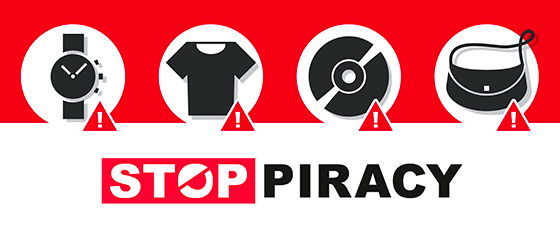
Advent is the most lucrative time of the year for online shop operators, but also for counterfeiters and fraudulent sites. Consumers are in the mood for shopping and every retailer wants a piece of the pie. Unfortunately, that also includes fake shops and product pirates.
This year’s figures from the Federal Office for Customs and Border Security once again show an approximately 30% increase in findings of counterfeit goods purchased on the internet.
It is thus all the more important for genuine online shops to win their customers’ trust and maintain it over the long term by communicating clearly. A few key features are sufficient to identify a genuine trader. Stop Piracy and Handelsverband.swiss explain what makes an online provider particularly trustworthy and what shoppers need to take a closer look at before ordering.
Cybercriminals often use an altered version of an existing web address. For example, they may pretend to have a connection with Switzerland by using extensions such as “Switzerland” and “suisse”. Moreover, a .ch ending does not necessarily mean that a site’s contents actually come from Switzerland, since people and companies domiciled abroad can buy .ch domains too.
A correct legal notice contains the company’s address, an email address and legal information, such as a reference to the company’s inclusion in the commercial register. If there is no legal notice or it is incomplete, this may be a sign that the shop is fake. There must also be a contact option of some sort – a chat link, an email address and, where possible, a phone number.
Online shops that have no ratings or hardly any ratings are suspect. This may be a sign that the shop was only recently set up. Online shops that mainly have very good or very bad ratings are often fakes. A large number of very bad ratings points to annoyed, deceived customers, while a large number of positive ratings often implies that the ratings have been faked or bought. This means that shoppers need to see a remarkable number of positive ratings as a warning sign too, rather than only worrying about bad or missing ratings.
Fake online shops often use free seals of quality to give the impression that they are genuine. The best way for shoppers to protect themselves from this kind of scam is to visit the official website of the seal provider and check the authenticity of the seal of quality there. Well-known seals of quality in Switzerland include: Swiss Online Garantie and Trusted Shops.
Customers in Switzerland are not legally entitled to exchange or return goods bought, but many Swiss online retailers voluntarily offer the right to return goods. If this option is not available, shoppers should be cautious.
If the prices seem too good to be true, the offer could be a scam. Genuine providers also offer discounts, but there is generally a time restriction and the reduction is normally a plausible amount compared with the usual price.
December 07, 2023


 News
News